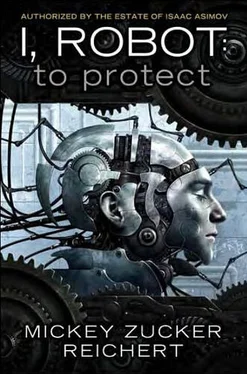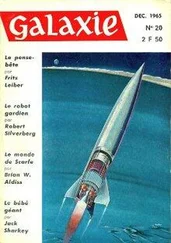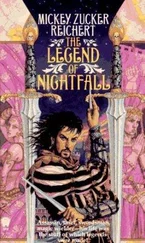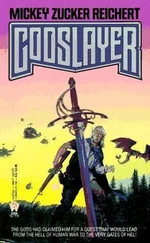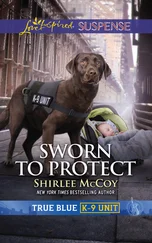“Patterns are always easier to see in hindsight, and you have to make the assumption first. I’m going to suggest all female nurses for Monterey at rounds tomorrow.” Susan looked Nate over carefully, and another idea came to mind. “And I’m going to suggest a visit to meet you.”
“Me?” Nate clearly did not follow again. “What good would that do? According to you, I’m indistinguishable from a regular, boring male.”
Susan smiled broadly. “Except for one very important difference.”
Nate guessed, “My circuitry?”
“You can’t die in a car crash.”

Susan Calvin broached the subject with her father over a dinner of stew that she ate alone as they talked. “Dad, I used to love the big family meals with Mom.”
John dodged her gaze. “I thought we were talking about what you did at work.”
“We are,” Susan assured him around a mouthful of whole grain roll. “I have a patient who hasn’t spoken since the car accident that killed her father. And a father who hasn’t dated or eaten since the car accident that killed his wife.”
“I eat,” John protested.
“Not that I’ve seen. Not for years.”
John shrugged. He reached across the table, snagged a carrot from Susan’s stew, and took a bite. “Happy?”
Susan rolled her eyes.
John chewed and swallowed before explaining. “It’s not that I can’t eat with people anymore. It’s just that food doesn’t taste right since the accident, and I never know if something’s going to hit me the wrong way while I’m with a friend or an important client. Why spend a fortune on gourmet cooking that tastes like cardboard or plastic or dish soap? Eating in groups also makes me think of your mother, and that makes me sad. Grief is entirely normal.”
“Grief is normal,” Susan confirmed. “But it’s not supposed to keep people from participating in normal life experiences forever. Don’t you think that, after twenty years, you should have gotten over it enough to do something as ordinary as eating in public?”
John put down the remaining piece of carrot. “Susan, it’s not a matter of ‘getting over it.’ I’ve come to grips with losing your mother; but the damage the accident did to my neurological system is not reparable. My sense of taste is permanently haywire, and I’m not that great at smelling, either.”
Susan could only stare. “The . . . accident? You mean, you were there ?”
Now it was John’s turn to stare. “Of course I was there. I was driving. Don’t you remember, Susan?”
Susan dropped her fork to sit in contemplative silence. She had just spent five minutes excoriating her father for refusing to accept the past when she had just as intently attempted to make it disappear. She tried to force her mind back to her preschool years, but she had created so many walls, diversions, and U-turns, she found it difficult to find her way.
“For a brief period, you were an orphan. You lived with Nana for months. If not for several miracles of modern science, I wouldn’t be here.”
That brought back a glimmer of memory. Susan recalled spending time alone with Nana in her cramped apartment in the Bronx. Sunlight streamed through her bedroom window every morning, waking her, and Nana had seemed as happy and welcome as the bright sun most of the time. Sometimes, though, Susan could hear her grandmother sobbing in the deepest part of the night. The mere thought made Susan shudder. She wanted to close it away, to never think of it again. My God, I’m as bad as Dad and Monterey.
“Susan, my life choices, silly as they might seem, don’t harm anyone. They don’t cripple me from doing any of the things in life I wish or need to do.”
Susan had to agree. What differentiated a conversion reaction that required hospitalization from a mild neurosis was exactly what John had described. Unlike Susan’s deliberate forgetting or John’s secluded eating, Monterey’s refusal to communicate made her activities of daily living impossible. “But what about dating?”
“What about dating?”
“Why don’t you?”
“How do you know I don’t?”
That stopped Susan cold. “You’re seeing someone?”
John smiled crookedly. “No. I didn’t date while I raised you. I made the choice to dedicate myself fully to that task, putting it above all others. How do you know what I did or didn’t do while you were at school?”
I don’t, Susan realized. “I guess I believed you would have mentioned it. I told you about my boyfriends.” They had already talked about her first date with Remington.
“When are you seeing Remy again?”
“Dinner tomorrow night.” Susan refused to be distracted. “But we’re talking about you.”
John tried again. “Surely, you don’t expect your father to discuss his sex life with you?”
Susan did not flinch. “You can tell me about nights out and girlfriends without going into those kinds of details.”
John sighed and rose from the table. He started to pace farther into the kitchen, his back to Susan. “Fine, I don’t date. And don’t get any ideas, Susan. I don’t have any desire to do so. If that ever changes, I promise I’ll let you know. For now, I like to believe that Amanda was my soul mate.” He turned back to face her.
So long as it did not make him unhappy, Susan could not condemn the mind-set. He clearly had no more interest in a second wife than she did in a second mother. “I guess that would make me the child of true love. The perfect kid.”
John grinned. “You always have been, in my eyes.”
Susan believed him. Whenever she made a mistake, he had always corrected her in a way that made it seem she had figured it out herself. She could not remember his ever raising his voice to her. As much as he had believed in her, she had believed in him. He was a treasure, a gem of a father.
Susan realized she had allowed this saint of a father to distract her from the point once again. “Thanks, Dad.”
“For what?” A hitch had entered John Calvin’s voice.
“For talking about the accident. I know how much it hurts. . . .”
John turned away again. He was clearly struggling to be gallant. “Had I realized . . . that avoiding the subject . . . had left you with . . .”
Susan helped him, “Some misconceptions? That’s not your fault; it’s mine. I guess I just didn’t want to think about how close I came to losing both of you.” She contemplated what a child’s mind could make of such a tragedy. “My preschool thoughts made you invincible. As I matured, I guess I just whisked you completely out of the memory. Safe and sound.” That realization forced Susan to look at the comparisons in a new light. “You know, Dad, I was comparing you with my patient and thought understanding you might help me to help her. Now, I realize I’m more like her. Except she got a front-row seat to her catastrophe.”
John seemed to have gotten hold of his emotions. From the back, Susan could tell he was wiping his eyes, but his voice became steady. “You never stopped speaking.”
“No.” Susan kept her own voice steady, trying to match her father’s courage. “But I did use at least one unhealthy defense mechanism, a bit of repression. Nothing too terrible. My patient, on the other hand, is somatosizing her anxiety.”
John turned around to stare at his daughter. “Are you speaking English?”
Susan chuckled. “Freudian English, such as it is. She’s channeling her anxiety into physical symptoms.”
“How do you fix that?”
“Other doctors have tried all the usual stuff: Certain medications can help, as can properly pointing out the psychological nature of the symptoms.”
Читать дальше
